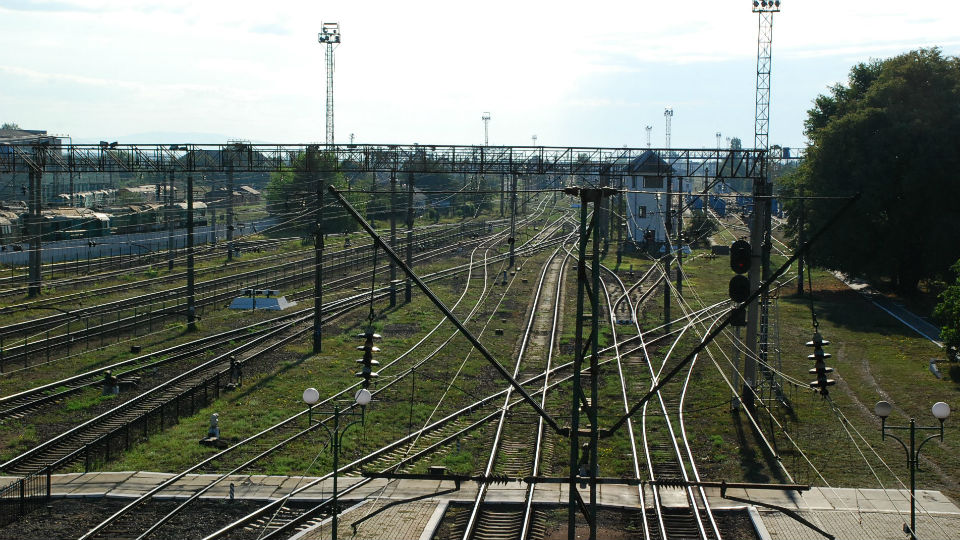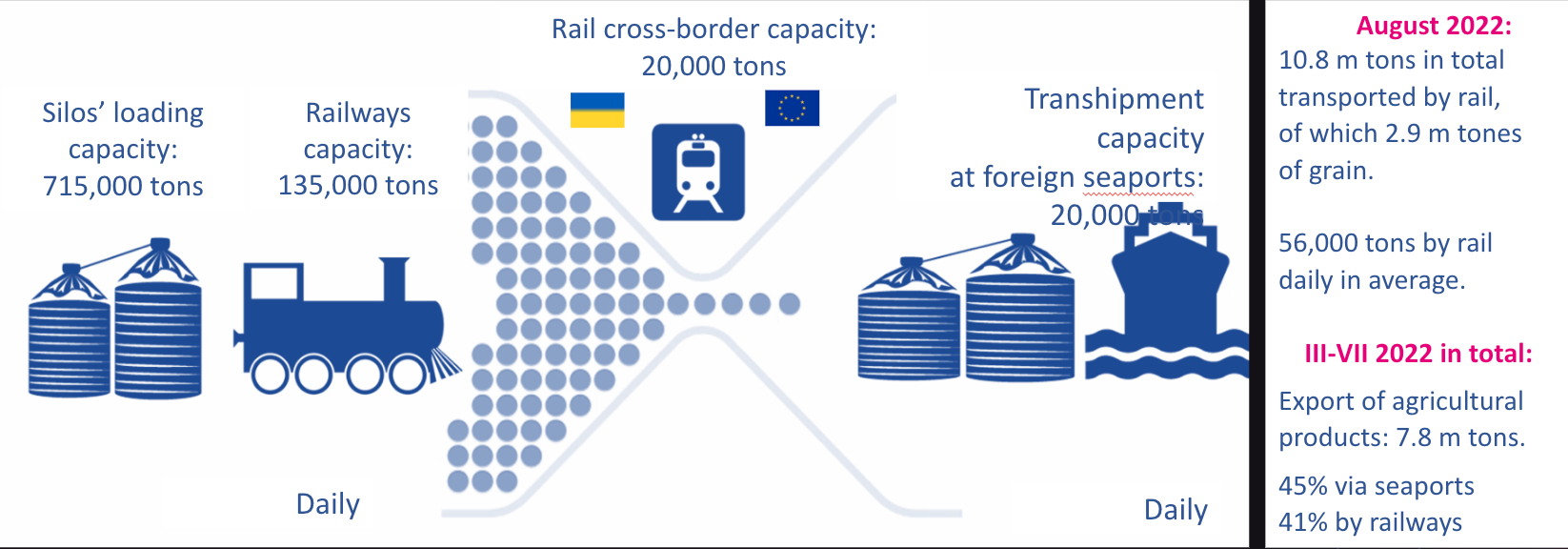Rail for Ukrainian grain exports: a necessity or the future?

Before the war in Ukraine, only 11 per cent of all exports was done by rail. In the period March-July, rail handled 41 per cent of the cargo flow, almost as much as the seaports, which accounted for 45 per cent. However, now that seaports are open for traffic again, it is the preferred transport mode for agricultural export products.
This became clear during the RailFreight Summit Poland, which was held in Warsaw on 8 & 9 September. Developing railway connections between Poland and Ukraine is good for many reasons, but when it comes to the transport of commodities such as grain and steel, ocean transport provides a better solution, industry experts agreed.
Longer distance means higher rates
Volodymyr Demenko, CEO of the Ukrainian logistics company Levada Cargo, held a compelling presentation in which he shared some interesting figures. Apart from limited border and rolling stock capacity, the distance of trains on the so-called grain corridors is simply too long, he said.
The grain corridors, which were established to accommodate the export of grain when the ports of Ukraine were blocked, take the important commodity from the border with Poland to several ports in Europe, such as nearby Gdansk, but also to western ports and those on the Adriatic and Black Sea.
Because these are long-distance journeys, the price of the transport has significantly increased. “Rates have multiplied by four, due to the distance increase, total fleet shortages (wagons/trucks) and limited infrastructure capacity”, said Demenko.
Border procedure too long
What adds to the complexity is the loading time of a grain hopper on the rails. Grain is currently mostly transported in open wagons, which takes much longer to be reloaded as there is not a single unit to be moved, explained Marcin Witczak, CEO of Polish company Laude Intermodal.
“Reloading a hopper takes 12-20 hours, while reloading a container takes 4 hours. Reloading is needed at the border due to the change of gauge”, said Witczak, adding that his company is now developing the containerisation of grain for more efficiency.
Odessa cannot be missed
Although rail was for many months the only export this year, both of the speakers stressed the importance of the ports now that it is able to operate again. Especially the port of Odessa is of crucial importance, this was supported by many figures. Before the war, up to 70 per cent of Ukraine’s trade was transported by sea. For agricultural products this figure was 90 per cent. In the period 2019-2020, 140.4 thousand tonnes of grain was exported per day on average, said Witczak.
Since the grain corridor via the port of Odessa was established in August this year, 700,000 tonnes of grain was transported through the port, said Demenko. This is a great achievement, he added, but he also hinted towards the fact that port exports needed to be increased in order to alleviate the railways.
“The speed and accuracy of railway transportation in the EU has increased significantly, which dramatically affects trade and production. In July, operators in Poland canceled up to 50 per cent of trains due to network congestion”, he said.

Why developing railway connections?
That is not to say that railway development is in vain, the opposite, the industry experts agreed. Developing railway connections between Poland and Ukraine will better integrate Ukraine with Poland. There is a big market for containerised transport. New terminals such in Mostyska, Zamość and Sosnowiec have great potential.
Infrastructure developments rather have a long-term impact, but are nevertheless welcome, said Demenko. “I believe that a significant share of the logistics sector will use this infrastructure after the war.” What is more, a large part of the infrastructure has been destroyed during the war. In the case of transport infrastructure, the damage is 35.1 billion US dollars, said Witczak.
Not a waste of money
When the audience at the RailFreight Summit was asked about the pros and cons of investing in railways between Ukraine and Poland, a vast majority said it was ‘not a waste of time and money’. There are companies who are hesitant to invest in new services, because they are not sure about the flow of traffic after the war”, one person in the audience commented.
There is no lack of confidence in the future on the side of the European Commission. In the new TEN-T regulation, the core transport network includes Ukraine and Moldova, while Belarus has been downgraded in terms of priorities. In the future, much more focus will lie on Ukraine as a gateway.
You just read one of our premium articles free of charge
Want full access? Take advantage of our exclusive offer






Yes, bio energy is the sustainable, the environmentally friendly energy – feeding us…
Vital functions, however, have to prove robust, resilient and redundant!
As by nature dependant of on shore infrastructure, railways has turned the not redundant device. Even worse, by sticking to standards, optimal, at shift from steam, now as well construction, as maintenance…, is dependant taxpayers budget . thus not of demand…
Neither resilent, nor robust, indeed railways now is due for a shift!
Comment above was meant for another release…
TEN-T etc., mantras of Commision, will not turn sustainable, until old standards, timely at shift from steam, are shifted out!
All other devices upgrade – for lower costs…
At current supply chains, high quality (low risk) urgently is requested – and handsomely rewarded, by willingly paying clients – and vice versa.
Regrettably, Commission and nations, IM:s all over, devastatingly are “cementing” railways of hemisphere. A shift is needed!